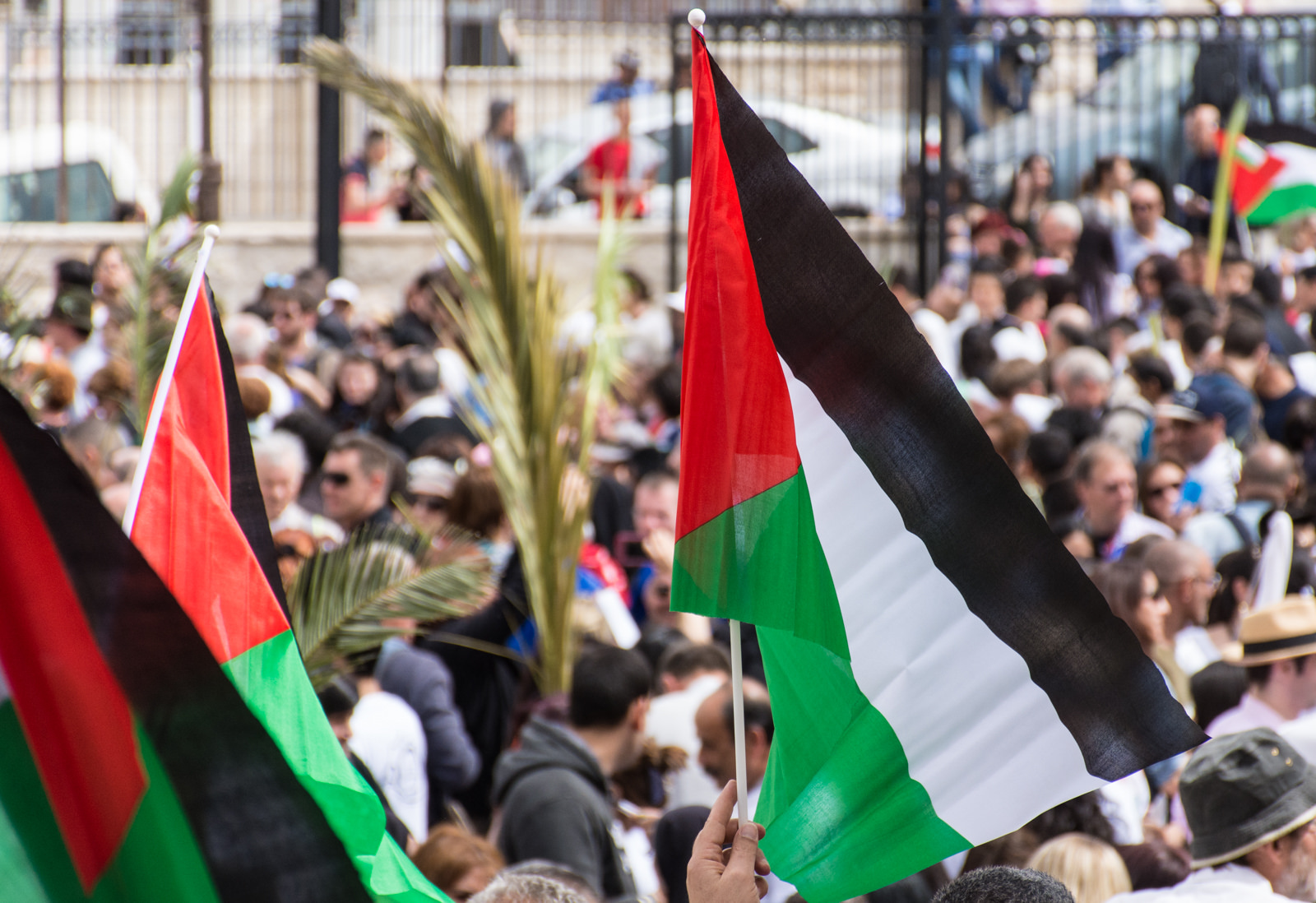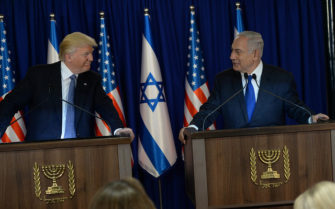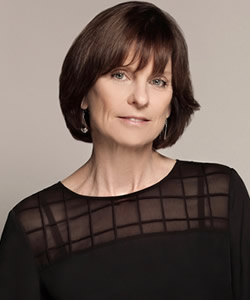
Essay posted in conjunction with Georgetown’s Berkeley Center for Religion, Peace, and World Affairs.
Are evangelicals the magic ingredient in the recipe that led Trump to claim he would recognize Jerusalem as Israel’s capital? Yes and no. Vice President Mike Pence unquestionably influenced the discussions in the White House, and Trump certainly felt himself in debt to white evangelicals in the US, but the role of Saudi Arabia’s Mohamed bin Salman in promoting a “peace plan” that betrayed Palestinian hopes for Jerusalem as their capital also had an immediate and forceful impact.
American evangelicals are, after all, divided on how they feel about President Trump, especially when theologically conservative Asian, black, and Latino Protestants are counted.[1] And when the announcement was made in early December, the evangelical community was already in turmoil over the lead-up to the special election featuring Roy Moore in Alabama. Still, the president and vice president clearly thought they had a heartwarming moment prepared for their conservative white base when they put together the Jerusalem photo op, with Pence standing by Trump’s side.
Indeed, evangelical Christians in the US, particularly white evangelicals, have long been a key base of support for Israel. The reasons for that support are many. Often, the assumption is that evangelicals’ views are based on biblical prophecy, and there is no question that, for a significant subset of evangelicals, the belief that Jesus will return to fight in the great battle of Armageddon (Har Megiddo) is key to their political and emotional commitments to the Jewish state.
But there are more prosaic reasons as well, including the powerful role that Holy Land tourism plays in shaping Americans’ perceptions of the region. Ever since Israel took control of all of Jerusalem in the 1967 war, American evangelicals have declared their support for its territorial ambitions by voting with their plane tickets. Within a month of the war’s end, Americans were rushing to join trips that no longer required complicated travel to Jordan. Israeli tour guides quickly ventured into the new territories, working in towns that just recently were controlled by Jordan, heading into tourist sites that had, just weeks before, been hosted by Palestinian guides. In late June of 1967, Israelis “took the wrong roads, wandered mistakenly into strange quarters, and spent part of their time asking directions as they moved through Bethlehem and Jerusalem.”[2] The control of those unfamiliar places would turn out to be quite lucrative, as an avalanche of tourists and dollars began to flow into the region. The number of tourists increased from an average of 269,000 arrivals a year in the 1960s to 772,000 a year in the 1970s.[3] In 2016, there were 2.9 million.
On tours led either by pastors or other well-known religious leaders, American evangelicals and other Christians, have learned to love Israel in the most material of ways—seeing the land, eating the local foods, “walking where Jesus walked”—all while being told that Israel could be counted on to guarantee their access to the religious sites they loved, in Jerusalem and beyond: the Garden Tomb, the stations of the cross, the Mount of the Beatitudes near the Sea of Galilee.[4] It is though these ordinary practices of visiting Israel—and ignoring Palestine—that American Christians have most commonly come to understand themselves as tied to the land, to Israel, to Jerusalem.
There are other motivations as well. Some evangelicals make political arguments about US interests, others simply argue that God has declared his preference for Jerusalem in the Bible. The combination of factors has made love of Israel into a kind of evangelical common sense over the fifty years. It was no surprise, then, when a raft of American evangelicals welcomed President Trump’s announcement that he would recognize Jerusalem. A roll call of conservative leaders lined up: James Dobson of Focus on the Family; Jerry Falwell Jr., president of Liberty University; Robert Jeffress of First Baptist Church of Dallas; Pentecostal pastor Paula White; and prophecy promoter Johan Hagee all touted Trump’s decision as an act of bold and faithful promise-keeping. Even Samuel Rodriguez, president of the national Hispanic Leadership Christian Conference, who had been critical of Trump on immigration issues, said that “the historical record, empirical fact and our faith all confirm that Jerusalem is in fact the capital of the Jewish people.”
And yet, on closer inspection, evangelical opinion was far more divided than all the ring-kissing seemed to imply. When Mark Galli, editor of Christianity Today (CT), opened a podcast discussion of Trump’s decision, he commented that, while he did not feel like he was particularly well educated on the Israeli-Palestinian conflict, Trump’s announcement made him “uncomfortable.” CT’s Morgan Lee made a similar comment: There were so many evangelicals hailing and praising the move, she said, and many of those evangelicals were the same ones who were saying that evangelicals in the US really needed to “stand up” for Christians in the Middle East. But those Middle Eastern Christians were not particularly happy about this decision. So, she said, “I really wanted to get at what the disconnect was.”
Disconnect indeed. Evangelical Christians in the Middle East were outspoken about their feelings of anger and betrayal at Trump’s announcement, supposedly rendered (in part) to make evangelicals happy. Botrus Mansour, a Baptist leader who is co-chair of the Lausanne Initiative for Reconciliation between Israel and Palestine (a working group of the Lausanne Movement, a global evangelical organization), told CT that the announcement “will increase resentment and possibly spark unnecessary violence, making peace harder to obtain.” In addition, he said, “America will lose any remaining legitimacy it had as a fair broker.”

It is far from clear that the United States had any such legitimacy left, but the striking thing was exactly the “disconnect” that CT’s reporting had highlighted. For more than two decades, the persecuted Christians movement among global evangelicals (and some other Christians) had talked about the “suffering church.” As a social movement built on web activism and church-based activities like the International Days of Prayer for the Persecuted Church, that movement had both conservative and liberal implications. On the one hand, the modern focus on Christian persecution emerged from, and profoundly fed into, the anti-Muslim tenor of much of evangelical life, both in and beyond the US. Violence against Christians was a real and persistent problem in many parts of the world, but since the 1990s when evangelicals took up the cause of the International Religious Freedom Act, religious activists had not infrequently misrepresented conflicts that emerged from on-the-ground tensions over land, resources, or power as matters of Muslims’ personal hatred of Christians.[5]
At the same time, the persecuted Christians movement had emerged out of the human rights activism of the 1970s and 1980s, and had pushed Americans and others to pay attention to the difficulties of fellow believers in the global South, bringing issues from human rights violations to hunger to HIV/AIDS to the attention of the broader evangelical community. And it encouraged the American church, in particular, to give more consideration to the racially diverse believers who were well on their way to becoming the global majority of evangelicals. That meant that, when Middle Eastern Christians talked, American evangelicals should, theoretically, listen. And, indeed, a small subset of US and other evangelicals had begun to pay particular attention to what Palestinian Christians were saying about their situation under Israeli governance. A number of those Americans had joined in the bi-annual conference, “Christ at the Checkpoint,” sponsored by Bethlehem Bible College.
This self-awareness about the globalizing of evangelicalism meant that even a moderately conservative journal like Christianity Today responded to Trump’s announcement by asking how a move of the US embassy would affect relationships between American evangelicals and Christians in Middle East. In recent years, CT reported, many evangelicals had decided that “we must become better friends, and work harder for the persecuted church’s flourishing in the land of its birth.” When reporters asked people in those churches what they thought of the policy change, some were blunt. Mitri Raheb, an evangelical Lutheran pastor and author, said that “local Christians [had been] sacrificed on the altar of imperial politics.” The head of the Coptic Church in Egypt announced that he would not be meeting with Vice President Pence during his visit to Israel and Egypt in December. The Christian mayor of Bethlehem also announced he would not meet with Pence. The message was clear, for those who wanted to listen.
The Trump announcement also came at a moment when cracks were showing in the pro-Israel edifice at home. It turns out that younger American evangelicals, much like younger Jews, are tracking differently than their parents. According to recent polls, evangelical millennials have far fewer attachments to Israel. Forty percent of evangelicals aged 18 to 34 say they have no particularly strong views about Israel. When asked whether the founding of Israel was an injustice to Palestinians, 19 percent say yes, and 47 percent are not sure. In fact, when younger evangelicals consider the key issues facing the Middle East, they are more likely to think about Iraq and ISIS than Israel. Compared to previous generations of evangelicals, they are simultaneously more critical of Israel and less interested in it.
President Trump’s embassy announcement seemed to have been designed as yet another attempt to encourage his base, thumb his nose at European allies, and give shape to his foreign policy. He may have succeeded at all of those goals. But if his goal was to curry favor with evangelicals, there is a lesson that he has yet to learn: evangelicals are global, and their politics are changing almost as fast as their demographics.
Essay posted in conjunction with Georgetown’s Berkeley Center for Religion, Peace, and World Affairs.
[1] On believers of color, see the discussion “Am I an Evangelical?” featuring a group of Protestants of color, hosted by The Witness, a Black Christian Collective.
[2] NYT, June 24, 1967.
[3] Tourist numbers from Israel in Statistics, 1948-2000 (Jerusalem: Central Bureau of Statistics, 2008).
[4] See Hillary Kaell, Walking Where Jesus Walked: American Christians and Holy Land Pilgrimage. New York: New York University Press, 2014.
[5] Melani McAlister, “The Politics of Persecution,” Middle East Report (Winter 2008), http://www.merip.org/mer/mer249/politics-persecution.

